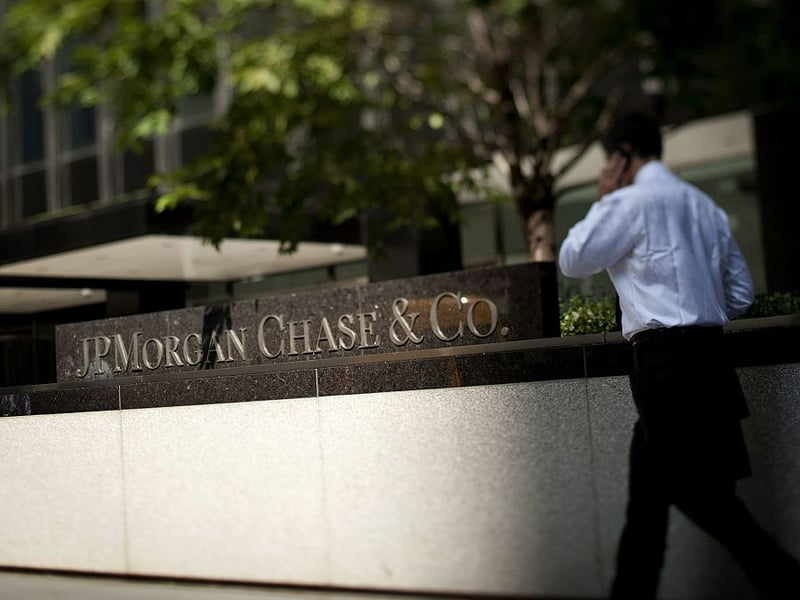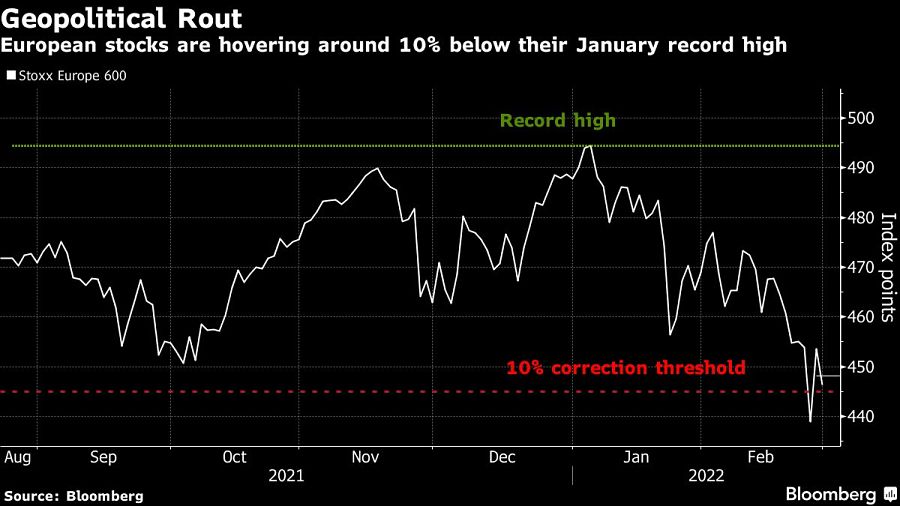

In the face of an increasingly chaotic geopolitical environment, investors should avoid panic selling of stocks and focus on the market fundamentals, according to JPMorgan Chase & Co.’s head of global equity strategy, Mislav Matejka.
“If one is selling on the back of the latest geopolitical developments now, the risk is of getting whipsawed,” Matejka and his team wrote in a note to clients Monday. “Historically, vast majority of military conflicts, especially if localized, did not tend to hurt investor confidence for too long, and would end up as buying opportunities.”
The appeal for calm comes as a fresh wave of Western sanctions against Russia and increasingly aggressive rhetoric from president Vladimir Putin, who ordered his nuclear forces to be on alert over the weekend, exacerbated this year’s rout in equity markets on both sides of the Atlantic.

Banking stocks were the biggest decliners in Europe on Monday, sinking to the lowest in two months, after the U.S. and EU ramped up their measures against Russia by blocking some of the nation's banks from the international SWIFT transaction messaging system and moving to target the central bank’s foreign exchange reserves.
“We acknowledge that our longs in Europe and in banks are not likely to perform as long as this crisis dominates the headlines,” JPMorgan’s strategists said. Still, on anything longer than a one-month horizon, banks and Europe should continue to be seen as fundamental overweights, the strategists added, “especially if commodity flows are not cut from Russia.”
UBS Global Wealth Management echoed the sentiment on Monday.
“We caution against hasty shifts in positioning based on events,” strategists led by Mark Haefele wrote.
“We think it is important that investors maintain a calm stance and keep a long-term perspective,” they said, advising investors to diversify across regions, sectors, and asset classes, use commodities as a geopolitical hedge, and position for U.S. dollar strength.

While industry statistics pointing to a succession crisis can cause alarm, advisor-owners should be free to consider a middle path between staying solo and catching the surging wave of M&A.

New joint research by T. Rowe Price, MIT, and Stanford University finds more diverse asset allocations among older participants.

With its asset pipeline bursting past $13 billion, Farther is looking to build more momentum with three new managing directors.

A Department of Labor proposal to scrap a regulatory provision under ERISA could create uncertainty for fiduciaries, the trade association argues.

"We continue to feel confident about our ability to capture 90%," LPL CEO Rich Steinmeier told analysts during the firm's 2nd quarter earnings call.
Orion's Tom Wilson on delivering coordinated, high-touch service in a world where returns alone no longer set you apart.
Barely a decade old, registered index-linked annuities have quickly surged in popularity, thanks to their unique blend of protection and growth potential—an appealing option for investors looking to chart a steadier course through today's choppy market waters, says Myles Lambert, Brighthouse Financial.
